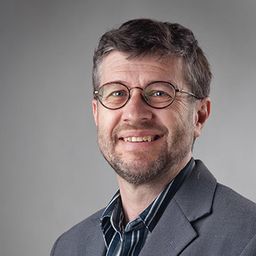Wednesday 31 August, 2022
Visit of the permanent exhibition : À cœur de jour, grandeurs et misères d'un quartier populaire, which traces the history of one of the oldest industrial and working-class neighborhoods in Montreal. Discovery of the old Généreux bathhouse, a building that recalls a time when most working-class dwellings had neither bath nor shower. Presentation of some elements of the neighborhood's heritage on the way between UQAM and the Écomusée.The visit will be guided in French by René Binette...
L’architecture du XXe siècle, par les méthodes de construction, les matériaux utilisés et la conception des ouvrages est partie prenante du patrimoine industriel. S’intéresser aux nouveaux matériaux, ceux apparus et produits depuis le XIXe siècle, participe de cette connaissance de l’industrie et de ses traces matérielles et immatérielles.Lancée en janvier 2019 pour quatre ans, le programme de recherche ARCHIPAL, «&n...
L’activité industrielle est un puissant facteur de concentration de population. En témoignent les sites antiques ou médiévaux étudiés par les historiens, souvent proches des mines, des carrières ou des chantiers de construction. À partir du XVIIIe siècle, cependant, avec les premiers développements industriels, des liens forts se tissent entre les usines et diverses formes d’urbanisation. De la variété de rapports que construit l’industrie avec la ville ou, plus largement, avec les lieux d...
The role of industrial heritage in urban development has been extensively acknowledged in guiding and legitimizing the policies and discourses implemented by governments mostly to ensure the continuity between the past, present and future. Mega-events such as sports (e.g. Olympics, World Cup, etc.), cultural (Universal Expositions and national Exhibitions), economic (trade and technology fairs) events are often opportunities used in a top-down process to reinforce the mobilization of the i...
The Global and Local Section of TICCIH aims to continue its collaborative work by organising a separate session within the framework of the 18th congress in Montreal, Canada. Following its previous sessions centred on various subjects at the Freiberg, Tampere, Taipei and Lille TICCIH conferences, this time the Section will focus on the identity of industrial civilisation in the post-communist countries in Central and Eastern Europe from the angle of its industrial heritage, lost or preserv...
North America has a large number of historic canals, which have been closed to commercial shipping due in part to the evolution of transportation (higher tonnage ships, trains, trucks, etc.). While some historic canals have been filled in, forgotten or disused, many have survived, in whole or in part, becoming attractive heritage sites. For some of these, the challenge is to reconcile the preservation of historic components with the need to keep their waterway accessible to navigation. Thi...
The legacy of open pit mining in general, and in the landscape of the Lusatian lignite district in Germany in particular, is a recultivated, restored, man-made, technogenic landscape. However, the future post-mining land uses in Lusatia must be understood as an opportunity that enables future-oriented land use not only from a technological-scientific and economic basis, but also from a social and especially cultural perspective. Therefore, the currently often negatively described Lusatian ...
Industrialization processes have been global from their very beginning. However, their interpretation still tends to be limited to specific locations or regions, and to specific time periods. Regularly, for example, it is stated that the industrial revolution started in Europe, from where it spread to the world, supposedly bringing technological and social progress to „less developed“ countries. Earlier periods of technology and knowledge transfer processes, that were already in place in t...
This session brings together a set of studies focused on the uses adaptative reuses (and even replications) of industrial heritage in the larger context of its urban and social landscapes. Urban industrial memory, its social and territorial impacts, as well as its conservation and promotion, will be discussed from a variety of case studies ranging from Central and Southern Europe to Turkey, China and North America. The interdisciplinary approaches underlying each of the studies will also b...
Examples from several continents, in Europe, South America, North America, Turkey, show strong continuity in the objectives that govern the reuse of industrial buildings, for example the concern to take into account the industrial heritage as a resource for urban and territorial development, or the close links that it has with culture, whether it is used to house cultural facilities or more simply to bear witness to the history and memory of the place. Increasingly, policies for the reuse ...
In this roundtable we will resume and discuss main ideas and findings from the regular session on "Reinterpreting industrial heritage from a global perspective", which will be held in 7 slots from Monday through to Wednesday morning. During these days, we will deepen the discussion between the session’s participants and other colleagues, while spending time together on the congress’ floors and doorsteps. In addition, we can build on previous reflections some of us shared dur...
This session brings together a set of studies focused on the uses adaptative reuses (and even replications) of industrial heritage in the larger context of its urban and social landscapes. Urban industrial memory, its social and territorial impacts, as well as its conservation and promotion, will be discussed from a variety of case studies ranging from Central and Southern Europe to Turkey, China and North America. The interdisciplinary approaches underlying each of the studies will also b...
L’activité industrielle est un puissant facteur de concentration de population. En témoignent les sites antiques ou médiévaux étudiés par les historiens, souvent proches des mines, des carrières ou des chantiers de construction. À partir du XVIIIe siècle, cependant, avec les premiers développements industriels, des liens forts se tissent entre les usines et diverses formes d’urbanisation. De la variété de rapports que construit l’industrie avec la ville ou, plus largement, avec les lieux d...
The Global and Local Section of TICCIH aims to continue its collaborative work by organising a separate session within the framework of the 18th congress in Montreal, Canada. Following its previous sessions centred on various subjects at the Freiberg, Tampere, Taipei and Lille TICCIH conferences, this time the Section will focus on the identity of industrial civilisation in the post-communist countries in Central and Eastern Europe from the angle of its industrial heritage, lost or preserv...
North America has a large number of historic canals, which have been closed to commercial shipping due in part to the evolution of transportation (higher tonnage ships, trains, trucks, etc.). While some historic canals have been filled in, forgotten or disused, many have survived, in whole or in part, becoming attractive heritage sites. For some of these, the challenge is to reconcile the preservation of historic components with the need to keep their waterway accessible to navigation. Thi...
Examples from several continents, in Europe, South America, North America, Turkey, show strong continuity in the objectives that govern the reuse of industrial buildings, for example the concern to take into account the industrial heritage as a resource for urban and territorial development, or the close links that it has with culture, whether it is used to house cultural facilities or more simply to bear witness to the history and memory of the place. Increasingly, policies for the reuse ...
L’architecture du XXe siècle, par les méthodes de construction, les matériaux utilisés et la conception des ouvrages est partie prenante du patrimoine industriel. S’intéresser aux nouveaux matériaux, ceux apparus et produits depuis le XIXe siècle, participe de cette connaissance de l’industrie et de ses traces matérielles et immatérielles.Lancée en janvier 2019 pour quatre ans, le programme de recherche ARCHIPAL, «&n...
The role of industrial heritage in urban development has been extensively acknowledged in guiding and legitimizing the policies and discourses implemented by governments mostly to ensure the continuity between the past, present and future. Mega-events such as sports (e.g. Olympics, World Cup, etc.), cultural (Universal Expositions and national Exhibitions), economic (trade and technology fairs) events are often opportunities used in a top-down process to reinforce the mobilization of the i...
The Soulanges Canal is an infrastructure, located on the north shore of the St. Lawrence, which was opened to maritime traffic in 1900, succeeding the "old canal" of Beauharnois (established since 1843 on the north shore of the St. Lawrence). The Soulanges Canal was abandoned in 1959, when the current St. Lawrence Seaway linking the Great Lakes to the Atlantic opened.The Soulanges Canal was designed by the engineer Thomas Monro (1831-1903). Of Irish origin but trained in civil engin...
Les friches industrielles sont devenues des figures urbaines ordinaires et témoignent, dans les anciennes puissances industrielles mais aussi dans les pays du Sud, des transformations du tissu urbain ainsi que du fait qu’il y ait processus de qualification, déqualification et, parfois, requalification de ces lieux. Les transformations qui les caractérisent structurent aujourd’hui d’indéniables enjeux politiques, sociologiques, spatiaux et culturels.Dans le cadre de ce congrès dont l...
This session addresses a perpetuating disjunction between conceptualisation of heritage and heritage making in heritage studies vis-a-vis heritage management and conservation of industrial heritage sites. There is an inevitable impact of this disjunction on advancing policy in people- and place-centred approaches to heritage futures. This session aims to explore ways in which tangible and intangible traces of the past can be utilised creatively in shaping desirable places to dwell and work...
The Global and Local Section of TICCIH aims to continue its collaborative work by organising a separate session within the framework of the 18th congress in Montreal, Canada. Following its previous sessions centred on various subjects at the Freiberg, Tampere, Taipei and Lille TICCIH conferences, this time the Section will focus on the identity of industrial civilisation in the post-communist countries in Central and Eastern Europe from the angle of its industrial heritage, lost or preserv...
This session brings together a set of studies focused on the uses adaptative reuses (and even replications) of industrial heritage in the larger context of its urban and social landscapes. Urban industrial memory, its social and territorial impacts, as well as its conservation and promotion, will be discussed from a variety of case studies ranging from Central and Southern Europe to Turkey, China and North America. The interdisciplinary approaches underlying each of the studies will also b...
This tour offers an excursion on a privatized deck of Montreal's bateau-mouche; a playful guided tour that takes in some of the city's industrial landmarks from the St. Lawrence River.The tour is priced to cover additional costs; the fee includes access to the bateau-mouche, the tour and a drink.Departure will be on foot from the conference venue; boarding is at 3:45 p.m. at the l...
In this lecture, I would like to talk about deindustrialised communities, heritage and memory in the context of right-wing populism. Drawing on studies of memory and heritage, I argue that right-wing populists have cornered the market on talking about the past of deindustrialised communities. They have successfully misrepresented this rich and complex history to fuel rage, resentment, fear and reactionary nostalgia. Indeed, ‘the past’, and in particular the industr...
Join us for an informal continuation of the discussion started with the public lecture.A drink will be offered to the first fifteen people.


